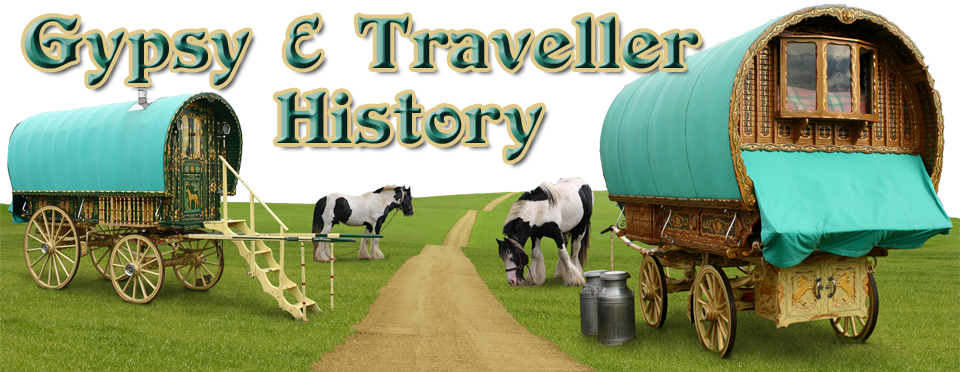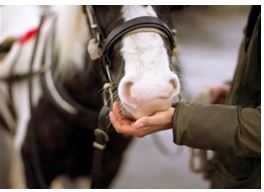Who are Gypsies and Travellers?
Comments from the wider Community – 2010:
“They are not Travellers because they don’t live in caravans or trailers. They live in houses so they are not a minority group; they are the same as you and me”.
“They steal – when there’s a crime in the village, we know who’s done it”.
“They send their children to school dirty, and they never have the right PE kit or things they need like dinner money or money for school trips.
“They steal. I would not go up there alone – they’ve got guns and they are not afraid to use them”.
Not all Travellers are Romanies, and not all Romanies are Nomadic. “Travellers” is used as a generic term, although some Romanies prefer to be called Gypsies, so there is some inter-changeability. Each group has a different history, and to a considerable extent, different customs and traditions (Peacock, 1999). The term Gypsy encompasses numerous culturally diverse groups of people, who speak a variety of dialects including versions of Romani.
It is estimated that there are around 5 million Gypsies living in many countries of the world, speaking around 100 variations of Romani language. (Leigious, 1987, In O’Nions, 1995)
Statistics show that around 300,000 live in Britain on authorised sites, illegal encampments and in housing. A modest estimate indicates there are 3,000 Gypsies Travelling in England at any one time. Twice yearly, there is a count which is undertaken by every Local Authority in July & December. The findings of this are then reported to Department of Communities and Local Government. Activists for the Gypsy Community feel this number does not reflect the true picture – believing the accurate number could be as much as £10,000 for the New Forest alone.
Non Gypsies or “Giorgio’s” as they are known have always regarded the Gypsy way of life with romantic envy, and yet have always slightly feared and disliked them – people over the years have viewed them as thieves, vagabonds and beggars. They in turn have a dislike for the way of life of the non Gypsy. However with increasing legislation, more traffic on the roads and less places to stop making it difficult for people to maintain the travelling way of life, Gypsies are more often house dwellers than not these days. Many of them are concerned that their traditions and culture will be lost forever. In view of this we decided to produce this booklet, to celebrate Roma month, which happens every June.
In modern times, it is easy for us to forget that being in settled in permanent accommodation is a relatively new concept – for centuries, people from a variety of cultures were nomadic - instead of travelling backwards and forwards to work as we do today, people moved on from place to place as and when they needed to. Nomadic people transported their homes, families, possessions and animals whenever they moved on. Many indigenous cultures were nomadic, including Native Americans, Aborigine, Mauri (check spelling) Bushman, Eskimos and Lapps.
There were three main reasons
- Herding Domestic Animals
- Gathering and foraging plants
- Hunting wild animals
Movement was often seasonal, always tribal. People depended on one another, and on an interaction of skills and responsibilities which depended on age, gender, physical and mental fitness – however everyone mattered and their role within the tribe was essential.
Many of these tribal people are now practically extinct, forced by ‘civilisation’ to abandon their ancient ways of life and knowledge of working co-operatively with the nature.
There are still a number of nomadic cultures today with varied histories – however it appears that legislation and social prejudice have forced many of these communities to settle in one place – Gypsies and Travellers are no exception to this.
Travellers
Not all Travellers are Romany, and not all Romany are nomadic. Travellers is used as a generic term, although Romany generally prefer to be known as Gypsies. Each group has a different history and to a considerable extent, different customs and traditions. The cultural identity of all groups is based upon self-employment, self-help and Nomadic, (Okely,1983,p10) while persecution and discrimination have been a consistent theme for them all. (Liegeois,1986,p46)
Cultural Roots
The common perception that Travellers are merely a ‘social group of nomads’, with no bona fide cultural values distinct from the host society has threatened to undermine the Gypsy identity. (Leigious, 1987, In O’Nions, 1995, p2) Whilst the Council of Europe and the European Commission for Human Rights (Buckley v UK App 20348/92 11.1.95) have been actively defending and promoting the Gypsy culture, the United Kingdom has pursued a policy of integration and assimilation culminating in the Criminal Justice and Public Order Act 1994. Because they are an adaptable community, Gypsy people, whether they live in houses, trailers, or benders i.e. makeshift tent, have survived through centuries and have only just managed to maintain their own culture. Travellers have been part of British society for centuries and share one ideology, which is based upon the desire to roam.
The Commission for Racial Equality, the Swann Report (HMSO 1985), and Local Authorities have recognised the ethnic minority status of Travellers for some time now, which is reflected in both law and policy. In 1983, the criteria for identity as an ethnic group had been established in the House of Lords in the case of Mandala v Dowell Lee ([1983] 2.A>C>548) The Court stipulated 7 characteristics confirming ethnicity of Travellers. The first two are considered essential criteria:
- A long shared history of which the group is conscious as distinguishing it from other groups, and the memory of which keeps it alive.
- A cultural tradition of its own, including family and social customs and manners, often, but not necessarily, associated with religious observance.
- Log in to post comments


